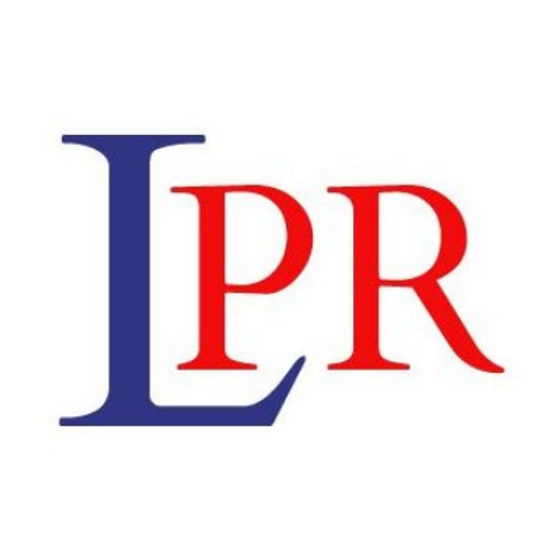This article is shared with the kind permission by the publication Carrier Management
—————
Louisiana’s newly enacted House Bill 672 has introduced a wave of regulatory changes that specifically target managing general agents (MGAs) operating within the state. These changes, which took effect in August 2024, aim to bring enhanced scrutiny and accountability to the intermediaries playing a growing role in the insurance ecosystem.

The bill’s core provisions impose more stringent oversight on MGAs — entities that historically operated with less regulatory interference compared to insurers. While Louisiana is not the first state to impose tighter regulations on these intermediaries, House Bill 672 stands out due to its rigorous reporting obligations, financial thresholds and restrictions on the movement of key personnel in cases of insurer insolvencies.
For MGAs and insurers both inside and outside of Louisiana, these new regulations signal a broader shift in the regulatory landscape, and the implications extend beyond state borders.
Key Provisions of House Bill 672
One of the hallmark provisions of House Bill 672 is its increased scrutiny on MGA financial reporting. Significantly, MGAs are now obligated to notify the Louisiana Department of Insurance (LDI) within 30 days if any balances due to an insurer exceed $1 million or 10 percent of the insurer’s policyholder surplus for more than 90 days. Similarly, and of unique significance, MGAs must notify the regulator if balances due from property and casualty agents or MGAs exceed $500,000 for more than 60 days. There are also notification requirements if claim settlement authority is withdrawn from an MGA.
In addition, MGAs must now submit quarterly reports to their carrier partners. These reports are not merely administrative but must detail comprehensive financial metrics, including written, earned and unearned premiums, losses paid and outstanding, incurred but not reported (IBNR) losses, and management fees. MGAs must submit these reports to the LDI upon request, ensuring that both insurers and regulators maintain a close watch on the financial health of these entities.
Notably, House Bill 672 does not merely focus on financial solvency. The bill also seeks to prevent executives of failed insurers from quickly re-entering the market via MGAs. It prohibits any individual who held an executive position at an insurer that went bankrupt within the previous two years from serving in an executive capacity at an MGA. These restrictions are intended to create a buffer period between failures and fresh opportunities, limiting the risk of individuals tied to previous insolvencies from influencing new entities. However, this restriction can be overridden by the insurance commissioner if it is determined that the executive did not contribute to the insurer’s insolvency.
Comparing Louisiana’s Regulations to Other States
While other states in the U.S. have implemented regulatory frameworks targeting MGAs, Louisiana’s approach stands out for its detailed financial and reporting requirements. For example, many states impose some level of reporting on MGAs, but Louisiana’s requirement for detailed quarterly reports covering premiums, losses and fees goes beyond the typical annual filings seen in other jurisdictions. The inclusion of IBNR losses is also noteworthy, as it signals the state’s concern about liabilities that may not immediately surface in traditional reporting.
Additionally, the threshold for reporting at the commissioner’s request—5 percent of an insurer’s policyholder surplus or exceeding certain financial limits—is relatively unique. Most states do not explicitly tie MGA reporting obligations to these financial markers, meaning Louisiana’s approach is one of the more proactive in terms of scrutinizing MGAs with substantial market influence or financial risk exposure.
Another important distinction is the personnel restrictions regarding executives from bankrupt insurers. While other states may have similar prohibitions, Louisiana’s focus on a two-year ban, with an option for regulatory override, reflects an intent to balance market discipline with fairness. In contrast, states like New York or California typically enforce broader restrictions without the same level of flexibility in providing exemptions.
What Louisiana’s ‘Data Call’ Means for MGAs and Insurers
One of the most impactful elements of House Bill 672 is the requirement for MGAs to submit what amounts to a data call—a highly detailed report on their financial activities. This goes beyond traditional reporting of premiums and losses. MGAs are expected to provide insights into loss adjustment expenses, incurred but not reported losses, and management fees, making this a more thorough examination of their role in the insurance chain.
The necessity of reporting these additional details introduces a layer of transparency that will likely be burdensome for smaller MGAs or those not accustomed to such granular data tracking. This data call will also give regulators a much more complete picture of the risks posed by MGAs, especially those that handle significant premiums on behalf of insurers.
For MGAs operating on thin margins or with limited back-office capabilities, the costs of compliance—whether in terms of time or financial resources—may prompt them to rethink their operations in Louisiana. But the data call also serves as an early warning system for insurers and regulators, ensuring that entities with significant exposure are flagged before problems escalate.
MGAs Under the Spotlight: A Growing Trend
Louisiana’s new MGA legislation, enacted through House Bill 672 and effective August 1, 2024, marks a significant intensification in regulatory scrutiny that goes beyond the NAIC MGA Model Act. Prompted by recent insolvencies among insurers associated with MGAs—particularly those managing high-risk property catastrophe insurance in Louisiana—the law introduces expanded requirements to bolster oversight and reduce financial risks.
While the bill introduces specific new reporting requirements and personnel restrictions that MGAs will need to navigate, its broader implications point to increased regulatory scrutiny nationwide. Other states may soon follow suit, particularly as MGAs continue to play a larger role in insurance distribution and underwriting.
In aligning with industry trends, this legislation responds to a growing demand for MGA growth, increasing private equity ownership, and heightened scrutiny from agencies like AM Best. Ultimately, House Bill 672 positions Louisiana’s regulatory framework to better address industry risks and preempt insolvency concerns in a rapidly evolving market.
For insurers and MGAs, these new regulations signal the need for stronger compliance infrastructures and a heightened focus on financial transparency, which can be achieved through proactive audits. The industry must adapt to this evolving landscape where regulators are more vigilant, and the margin for error is smaller than ever. As MGAs increasingly serve as key conduits between insurers and policyholders, the stakes for regulatory compliance will only grow.

Meet our expert
Name: Robert Sherman
Job title: US Head of Audit & Advisory
Get in touch
To speak to the Pro Global team please feel free to reach out to us at:

Lysander PR
To contact our PR team directly please use the link below



 View Previous
View Previous 